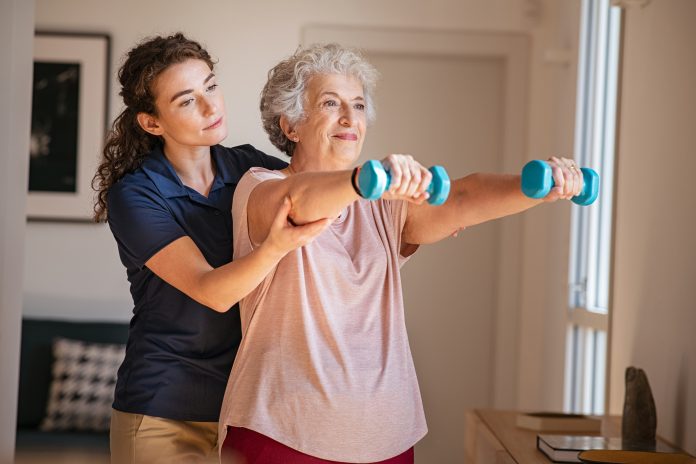
European research suggests that combining three simple interventions—vitamin D and omega-3 supplementation plus home exercise—could dramatically reduce the risk for cancer in healthy older adults.
The DO-HEALTH trial is the first to test these three interventions together and has shown that they have an additive effect on cancer prevention.
At present, there are very few recommendations for cancer prevention other than smoking cessation for lung cancer, with public health efforts focusing on vaccination or screening. However, the aging population in increasing cancer rates mean that more need to be done to reduce disease burden.
The DO-HEALTH trial was designed to support healthy aging in European adults aged 70 years and over and the current analysis focused on cancer prevention using three interventions that have been shown to affect different mechanistic pathways of cancer development.
Principle Investigator Heike Bishchoff-Ferrari, from the University of Zurich in Switzerland, explained that “vitamin D acts on cancer cell suppression and downregulates growth-hormones, omega-3 has anti-inflammatory effects, and exercise has been found to induce the death of cancer cells [but] currently published studies assess interventions separately disregarding their complementary mechanisms.”
To address this, the DO-HEALTH investigators carried out a multicenter trial in which 2157 generally healthy, community-dwelling adults aged 70 years and older were randomly assigned to one of eight different groups that tested the individual and combined benefits of the interventions.
They report in Frontiers In Aging that, during 3 years of follow-up, 81 participants developed invasive cancer.
Participants who were assigned to single interventions with either omega-3s at a dose of 1 g per day, vitamin D3 2,000 IU per day (equivalent to more than 200% of the current recommended daily amount of 800 IU/day), or a simple home exercise program (SHEP) three times per week had a small non-significantly reduced risk for cancer versus placebo, with hazard ratios (HRs) of 0.70, 0.74, and 0.76, respectively.
The cancer risk reduction was greater among people who received two interventions versus placebo. In this case, the HRs were a significant 0.52 for omega3s plus SHEP, a borderline significant 0.53 for omega-3s plus vitamin D, and a non-significant 0.56 for vitamin D plus SHEP.
And when the three interventions were combined the risk reduction was greater still, at a statistically significant HR of 0.39, which is equivalent to a 61% lower risk for cancer versus placebo.
Bischoff-Ferrari believes that the different oncologic pathways affected by Vitamin D, omega-3, and exercise have additive benefits for cancer prevention in the same way that combined cancer treatments block multiple pathways for cancer progression.
And she said that although the results require replication, the DO-HEALTH findings “may prove to be beneficial for reducing the burden of cancer,” adding that this suggestion “is further supported by the safety and low cost of the interventions.”













